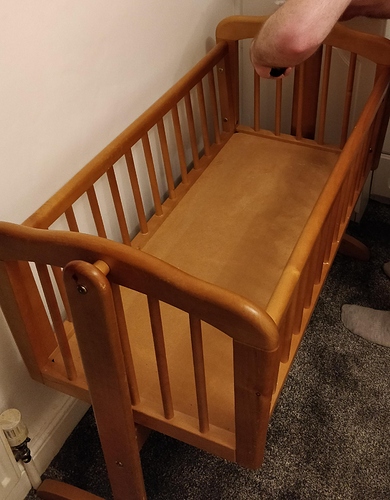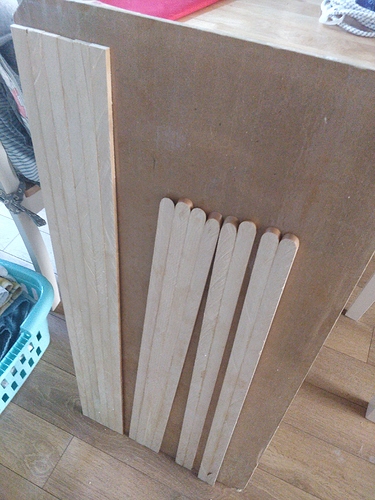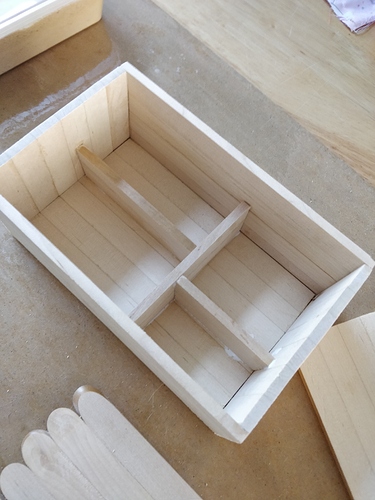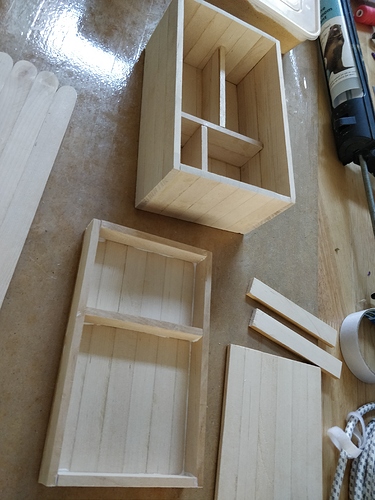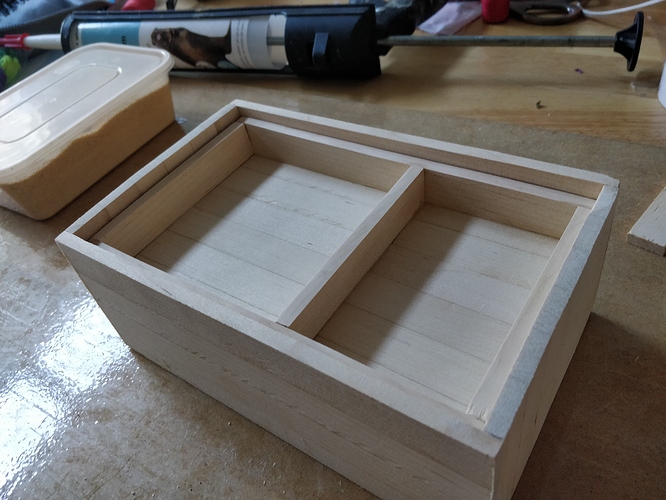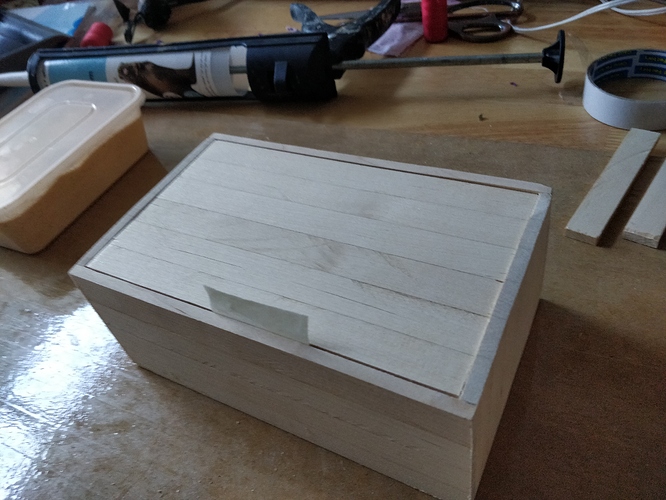I found out today that a little manual stimulation can work wonders. I was being particularly thorough around her bum after a big one. I guess I booped her a little because I can tell you I was not prepared for the next two minutes. That was my first proper poop-hose moment, but I think I got off lucky in terms of containment.
You still have poo in the bath to look forward to =)
My daughter often went days without a poo and then did it reasonably naturally.
Interestingly, it does appear that K and probably M are crying a lot, all day, as that’s about the only thing the staff felt like telling me, but they both cheer up immediately as soon as I have one in the back sling and the other on one arm.
constipuere omnes…
The wrangling of small humans doesn’t half coarsen the old sensibilities.
Ooof.
Our oldest has been doing a bit better. We received some things from Disability services (compression vest, compression bed cover) yesterday that seem to be helping.
Youngest, well when I say boucing off the ceiling and chewing on the walls I am being literal.
We just heard from our kids therapy that they are not opening center till mid July. And once they open they are no longer doing center based therapy on the weekends. While they are there, there needs to be an adult present.
I can not stress how convenient it is/was to have a Sunday a week to clean, errands, clean, sleep, cook n clean, and once in a while go to a movie. Some we can still do, but harder.
Our eldest was laughing in her sleep at 4am this morning. This makes me very happy.
We suspect ours may be sick at the moment. She regurgitated an impossible amount of milk yesterday afternoon, and she’s been hard to settle today and is only taking about half her current typical amount during feeds. This is causing no end of stress for my partner, whose default position is to dwell on how she may have failed our daughter. Obviously I’m doing what I can to console her about this, but it’s tricky when you can’t help rationalize what she’s feeling. I think I’ve done an ok job keeping her chin up, but I suspect this is a pretty common situation for a mother with a sick baby, any tips?
Meanwhile our baby has started to respond positively to kisses, so I’ve been just smothering her all over her cheeks and noggin.
Sounds pretty normal to me. Ours have on occasion projectile vomited more milk than a body that size should be able to contain like a scene from the Exorcist, but nothing else ever came of it.
(I am not a doctor and this is not medical advice.)
I’m not worried about the vomit (though seriously, it just kept coming. It was kind of mesmerizing!), but I am concerned about my partner getting down on herself about stuff she can’t control like that. I’m trying to think of some creative ways to boost her a little. Talk only goes so far sometimes.
Not ignoring you VictorViper, and I do hope someone (some mum?) here has some useful suggestions, but there is something entirely unrelated I want to get off my chest, and here seems like the place to do it.
It’s tough trying to raise a kid to be bilingual. Our eldest (S) goes through phases of totally rejecting English, saying she hates it and refuses to speak it, but is generally doing OK given that I am almost the only source of English in her life. She enjoys English picture books, sometimes watches films in English, and mostly understands me.
This isn’t about that though, it’s just related. The thing that has been bothering me lately is my wife’s (H) presumed (undiagnosed) dyslexia. Dyslexia isn’t a thing in Japan - it’s not recognised, diagnosed, allowed for, or even heard of by most people. It (whether “it” is dyslexia or not) caused H no end of grief in school, and makes form-filling and contract reading and the like quite stressful for her even now. Nothing for that but to persevere, as far as I know.
What causes friction though, is her use of spoken language and how that impacts our kids. When S says (the following is all in Japanese) she wants to go for a walk to a really distant park, I explain it’s too far to walk. She says no, she wants to go for a walk using her bicycle. I then find out that H has been using the phrase “go for a walk (using) bicycles” for some time. I ask H to correct herself, and she tries, but still gets it wrong sometimes. On another occasion that comes to mind, S asks for cornflakes. We don’t have any cereals made of corn or in flake form, so I can guess she means the chocolate puffed rice cereal, which H has been calling cornflakes. When I pointed out to H that they aren’t cornflakes, she got very angry and exclaimed that it doesn’t matter and they are similar things. There have been many other occasions like these.
I find this very hard to accept. Precision with language is how I make a living, and has always been important to me, and now we have kids who are already confused between two languages, getting further confused by incorrect Japanese (I’m happy for H to make any attempts at English, mistakes there don’t bother me at all). Part of the problem is that my Japanese isn’t perfect either - I only started leaning it in my 20s.
I don’t know what, if anything, can be done. Perhaps it’s just a stressful time for us both, and I just needed to vent.
As somebody who found myself in similar situations, I cannot claim to have dealt with it correctly so take this all with a healthy dose of caution.
Tell your partner “you are a great mother.” Those words. It sounds cheesey but it’s effective.
I can’t even fathom the number of hormones, emotions and societal pressures put on moms these days. As a father, I still hear jokes like “must be mom’s day off” when, in the before times, I would take my kids grocery shopping without my partner - society still assumes that the mother is in charge of the children and my partner definitely feels solely responsible for their well-being until I remind her that we are in it together and that we make joint decisions.
So be blunt: don’t sugar coat it, tell her she’s the best possible mommy for your kid because it’s true - if it weren’t, she wouldn’t be doubting herself and worrying if she’s not good enough.
The next most important thing: support structure. She needs friends and family. The whole “it takes a village” thing is so true. Even if it’s just a chance to chat with a friend, a cousin or her mom to talk about what’s going on with the baby. There are probably two or three people my partner talks to on a regular basis that know just as much as I do about what’s going on with our daughters.
I think these feelings are totally normal. Being a mum is incredibly tough and the world is not helpful. Every tv show ever perpetuates the myth that as soon as you see a baby you will love it forever.
My other half did and does really struggle with depression since she became a mum. The best thing she did was talk to other mums. It was like a window being opened into a secret world where suddenly she found almost everyone felt the same as she did, overwhelmed, conflicted and guilty.
Everything she is feeling is normal, but people feel they can’t admit it.
In summary, talk to mums. (And Dads!)
I don’t have anything to add, but good luck.
Do you have Mumsnet or Netmums in Japan?
We have all number of random phrases for things in our household and they’re just daft things that I assume any family does because children will misname things all the time.
My nextdoor neighbour is a translator for the Welsh Assembly. He, his wife and their 5 year old are all bilingual. I was talking to him about microwaves. He says he’d call it one thing in work, one thing at home and his daughter would be taught another word in school.
Talking, to your wife and to others has to be a good thing. I don’t know how Japanese culture works, but at work and at home I know that kids will get things wrong (that they’ve been taught or picked up themselves) and it very rarely matters.
If it helps, my partner is Lithuanian and I am Spanish, and my elder daughter (7, nearly 8) hardly speaks Spanish. I have the feeling at times that I have failed her, by not being insistent enough as her mum (she speaks Lithuanian and English fluently) has, but I always switched to English nearly automatically when she was little (easier I guess). I am now teaching her some Spanish (with the help of a couple of apps, as Spanish lessons were becoming a bit dry for her when I was teaching her verbs), and I know she will speak it with an English accent, but I speak English with an accent and it is not the end of the world.
My little one (3, nearly 4) does speak very little Lithuanian, but understands most of it. Having grown in NZ the last 2 years with very little Lithuanian influence (just mum and some friends of us) she is not getting so vocal about it. Hopefully she will get it. But it is not the end of the world.
Regarding naming things properly, I grew with a mum that was always asking “Bring me that thing behind the other one. No, not that one. The thingy? Yes, above the other whatname” and survived. Not traumatised or anything. Soon your children will click. And learn that different words might have different meanings coming from different people.
At a completely different level (to the point that I feel silly even mentioning it), my partner’s family is from Wisconsin and they definitely have the “northern” accent; my partner was actually born in Michigan but has lived here in Kansas City since she was 5, so her northern accent only comes out in a handful of words (bag, dragon, wagon- that northern ‘a’ sound that ends up almost sounding like it has an umlaut).
Being born and raised in or near Kansas City, I have the midwestern American accent - an accent most easily described as “lazy”- we use all of the laziest vowels and least complicated consonant sounds; that’s why everybody sings in my accent. I, in particular, have a particularly lazy midwestern accent. I’ve tried to be better about pronouncing all the letters in a word to be a model for my children, but I often forget. Here in Kansas City, most people don’t even say “Kansas City”, it’s “Kan<indistinct syllable>s’City”
The friction comes when we are visiting my in-laws; there are some idiosyncratic differences between here and words up north; nothing significant enough to derail my childrens’ developing vocabulary but it’s hard enough to understand my daughter already, must less when she starts using words and phrases she picked up from her grandparents. Notably, the one that always catches me off guard is when they say, “Come here once” which actually means, “Come here for a moment” (or, as I would phrase it, “Come here real quick”).
Like I said, I feel silly bringing it up; but this conversation got me thinking about it and I figured I would share (even though it provides no insight for those of you actually struggling with a bi- or tri-lingual problem).
My first is just over 5 months now (never again!). She’s been in her own room for a while now so I’ve finally got around to taking down the crib. I thought it would be nice to use it for something so I’ve been making a jewellery box out of it for when she’s older. Not finished yet!
That’s awesome
That’s beautiful lumber, glad to see it repurposed. Great looking work!
It’s Potty Training Bootcamp weekend. Towels line the couch and we are thankful to have hardwood floors: the 2.5 year old is going without a diaper (and without clothes for at least the first day)
